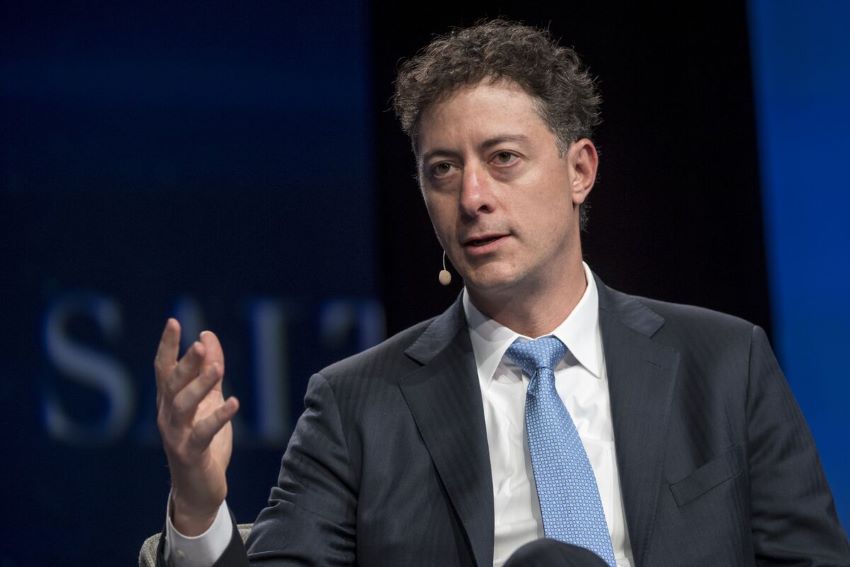Anamika Dey, editor
Brief news
- Mark Zuckerberg, CEO of Meta, acknowledges that there may be excessive investment in AI and that companies may realize they have spent too much money.
- Sundar Pichai, CEO of Alphabet, also expresses concern about excessive spending on AI infrastructure but sees little alternative.
- Nvidia’s revenue has significantly increased due to the high demand for AI processors from companies like Microsoft, Amazon, Google, and Oracle.
Detailed news
Mark Zuckerberg, the CEO of Meta, has been spending billions of dollars to develop and train advanced artificial intelligence models by accumulating a large stockpile of Nvidia processors.
However, even he acknowledges that the AI frenzy may be inciting an excessive amount of investment.
Zuckerberg stated in a podcast with Bloomberg’s Emily Chang this week that there is a substantial likelihood that numerous companies are currently overbuilding and that they will come to the realization that they may have spent a significant amount of money in excess.
He is not the sole individual who has expressed this sentiment.
During Alphabet’s earnings call on Wednesday, CEO Sundar Pichai expressed concern that the company may be spending an excessive amount of money on AI infrastructure, which is primarily comprised of Nvidia’s graphics processing units (GPUs). Nevertheless, he perceives that there is precious little alternative.
Pichai stated, “The risk of underinvestment is significantly greater than the risk of overinvestment for us when we traverse a curve such as this.”
Microsoft, Amazon, Oracle, and Tesla are all publicly stating that AI investment is a central priority for this year and the foreseeable future, in addition to Meta and Alphabet. Nvidia is accumulating business from these companies. Nvdia’s revenue has increased by over threefold in the past three quarters and is anticipated to surpass twofold in the current fiscal year.
This week, Alphabet and Tesla emphasized the costs associated with the AI buildout during their earnings calls. Investors can anticipate additional information from Microsoft, Amazon, and Meta when they report their results next week.
On Tuesday, Meta introduced its most recent Llama AI model. The model, known as Llama 3.1, is available in three distinct varieties, with one variant being the most powerful and expansive AI model from Meta to date. Meta is maintaining its commitment to open source technology, which enables external developers to access it at no cost, despite the company’s investment in the underlying infrastructure.

In the podcast with Chang, Zuckerberg stated that companies are “making a rational decision” in their AI investments, despite the exorbitant costs.
Zuckerberg stated, “Because the disadvantage of being behind is that you are not in a position to capitalize on the most critical technology for the next 10 to 15 years.”
According to Pichai, the infrastructure is “widely useful for us” despite the fact that Alphabet is investing excessively.
‘An opportunity and a threat’
Nvidia’s shares have increased by 131% this year, following a 239% increase in 2023. In June, the company momentarily surpassed Apple and Microsoft in market capitalization, but it is currently valued at nearly $3 trillion.

Microsoft, Amazon, Google, and Oracle account for over 40% of Nvidia’s revenue, as they require a substantial quantity of GPUs to support their public cloud services. Despite the fact that those companies are among the most well-capitalized on the planet, there is some apprehension among investors regarding the substantial stockpile.
Last week, David Cahn, a partner at Sequoia, stated in a blog post that the spending is driven by a competitive dynamic that follows game theory dynamics, resulting in a “cycle of competitive escalation.”
“The cloud giants perceive AI as both a threat and an opportunity, and they are unable to wait and observe the technology’s development,” Cahn wrote. “They are obligated to take action immediately.”
Cahn determined that the technology industry must generate $600 billion in annual AI revenue to justify the expenditures on data centers and processors.
Cahn reiterated his thesis on Wednesday, asserting that Zuckerberg and Pichai’s statements regarding controlling downside risk had served to reinforce it.
Cahn has posted on LinkedIn that the CEOs of Google and Meta have both resigned in the past 24 hours, and they are now in agreement with my AI Arms Race narrative. This narrative posits that AI CapEx is motivated by game theory and FOMO, rather than actual revenue or utilization.According to Nvidia, the demand for its most recent generation of AI processors, Blackwell, which is scheduled to be released later this year, will remain robust. However, it is beginning to address investor inquiries regarding return on investment as development inevitably declines as a result of historically challenging comparisons.
In May, Colette Kress, Nvidia’s finance director, informed investors that the company had determined that a cloud provider could rent an Nvidia-based server for $5 for every $1 spent. In a recent note, Goldman Sachs analysts stated that Nvidia is seeking to disclose these types of data elements in order to reassure investors.
Elon Musk, the CEO of Tesla, stated during the company’s earnings call on Tuesday that the demand for Nvidia hardware is so high that it is frequently challenging to obtain the GPUs. Tesla reported that it invested $600 million in capital expenditures on AI during the quarter, with a focus on autonomous vehicles and humanoid machines.
Musk stated that Tesla is prioritizing the development of its own Dojo supercomputer due to the exorbitant cost and scarcity of Nvidia processors.
Musk expressed his belief that the demand for Nvidia is so high that there is little alternative. “And it is evidently their responsibility to increase the price of GPUs to the extent that the market will bear, which is exceedingly high.”
Source : CNBC News



